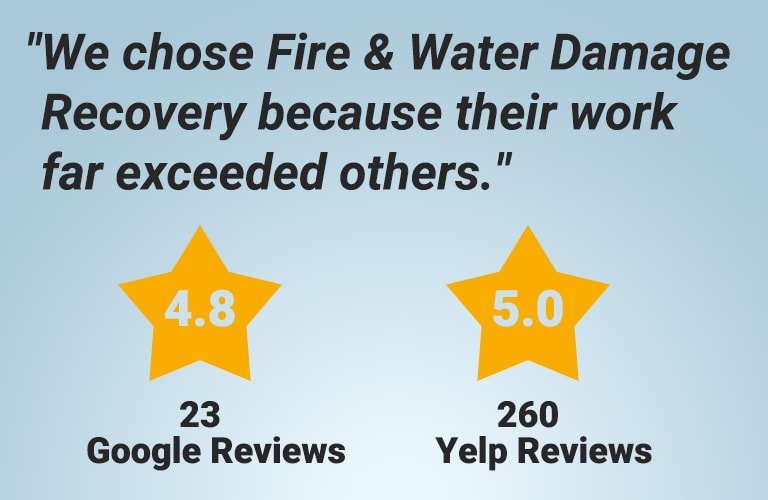Not known Details About Dry Star Restoration
Not known Details About Dry Star Restoration
Blog Article
Some Known Factual Statements About Dry Star Restoration
Table of ContentsAn Unbiased View of Dry Star RestorationThe smart Trick of Dry Star Restoration That Nobody is DiscussingDry Star Restoration for DummiesAbout Dry Star Restoration6 Easy Facts About Dry Star Restoration Explained
Particularly in wintertime, home heating units are a typical fire danger. Malfunctioning electrical wiring or positioning heating systems also close to combustible materials like curtains can fire up a fire.
Statistics: According to the National Fire Security Organization, household chemicals are accountable for a noteworthy portion of home fires each year. By knowing these typical causes, you can take actions to make your home much safer.
The Greatest Guide To Dry Star Restoration

Trick concerns consist of: Water Invasion: Water can seep into wall surfaces, floorings, and furniture. This can deteriorate the structural honesty of your home. Mold Growth: If water is moist quickly, mold and mildew can begin to grow within 24-48 hours. Mold can cause health problems and additional damages to your building. Structural Weakening: Water can compromise wooden structures and cause steel components to rust, making your home hazardous.
It's crucial to attend to all these facets to completely recover your home. Next, we will study the steps entailed in the fire damages restoration procedure. Fire reconstruction is the process of cleansing, repairing, and bring back a building that has been damaged by fire. The goal is to return the residential property to its pre-loss condition, meaning it looks and functions as it did prior to the fire.
Unknown Facts About Dry Star Restoration
Debris Removal and Demolition: Damaged materials are securely eliminated, and any kind of harmful compounds like asbestos are taken care of suitably. Fire damage encompasses several types of injury to a home: Physical Damage: This consists of charring, smudging, and fragmentation of products straight affected by the fire.
Water Damage: Water made use of to snuff out the fire can bring about architectural weakening and mold and mildew growth otherwise properly managed. Fire reconstruction professionals make use of specialized strategies and devices to deal with all these kinds of damages, guaranteeing the residential property is secure and comfortable once again. Next off, we will dive right into the steps associated with the fire damage reconstruction procedure.
From modern water removal devices to specialized tools for smoke and residue removal, we have the resources required to recover your building to its pre-loss condition. Our techniques are developed to be thorough and efficient, minimizing more damages and accelerating the healing procedure. Our group includes licensed specialists who are specialists in fire damages remediation.
Dry Star Restoration Things To Know Before You Buy
Their proficiency makes certain that every task is done right, offering you with tranquility of mind throughout a tough time. If you require fire damage remediation solutions, do not be reluctant to contact us. We're below to help you restore your home and your life after the fire. Last edited on 15th of July 2024.
(https://www.abnewswire.com/companyname/drystaraz.com_154751.html#detail-tab)If there's a fire, smoke makes sure to adhere to. While the fire's smoke is made up of components that make your home harmful to be in, the damages smoke leaves behind does not quit there. Smoke will drift to seemingly every part of your home, adhering to furnishings, style, curtains, wall surfaces, ceilings, floors, and much more.
The water will saturate right into the charred products and infected other areas of the home unaffected by the fire. If left unchecked or missed out on throughout fire damages remediation, the water damages will only aggravate with time and can result in mold development, security issues for your home's structure, and unsightly looks around your space, including distorted flooring, peeling paint, and visible spots.
Getting The Dry Star Restoration To Work
Water mitigation is usually the very first step of the fire, smoke, and water damage reconstruction process after a damage control has been finished. This attends to the water damage head-on and consists of steps to stop additional troubles for content your area before, throughout, and after reconstruction. Inspection and damage control to examine the degree of water damageIsolation of water damage to impacted locations to ban water from spreading to dry areasInspection of your home's foundation for structural stabilityExtraction of any kind of standing water from the propertyStructural drying out with commercial-grade equipmentSite clean-up that will certainly clear away debris, pack out salvageable content for repair, and give way for repair servicesWe'll also finish added damage mitigation by boarding up busted doors and windows, applying tarpaulins to holes in roofing systems, and completing various other actions to avoid extra damages and dangers to your home while the fixings are occurring.
Many terms and summaries utilized by water and fire damages restoration professionals are relatively obvious. However, the list of terms below must be helpful when you're communicating with the firm you have actually employed. Any type of activity taken to avoid the development and spreading of fungus, mold and mildew, mildew, and spores. This can include using solvents or chemicals as additives or obstacles on structure products to avoid fungus development.
Report this page